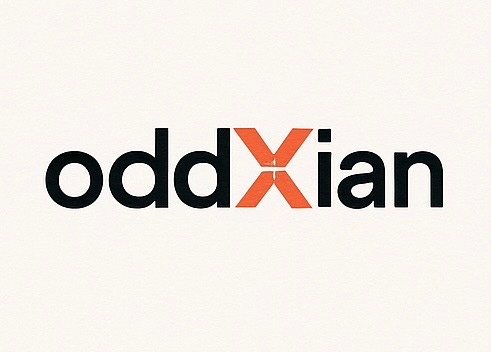Why the God-Man? The Logical Necessity of Christ's Two Natures
Christianity makes an audacious claim: Jesus Christ is both fully God and fully human, two complete natures united in one person. This isn't mystical paradox or poetic metaphor—it's logical necessity. Given the nature of humanity's rebellion and God's character, redemption requires nothing less than the God-Man.
The following demonstration shows why any deviation from orthodox Christology—whether denying Christ's full divinity, full humanity, or their union in one person—makes reconciliation impossible. The Incarnation isn't just true; it's necessary.
The Predicament: Image-Bearers in Rebellion
First, we must understand why redemption is needed and what it must accomplish.
Foundation — The Debt of Rebellion
P1: All image-bearers of God possess self-reliance and necessarily resist God's rule.
P2: Any resistance against the infinite God constitutes infinite offense.
B1: Any offense against an infinite being is infinitely grave.
P3: Justice demands satisfaction proportional to the offense.
P4: Mercy seeks to forgive without compromising justice.
C: Therefore, redemption requires infinite satisfaction that upholds justice while enabling mercy.
Why Fully Human: The Requirement of Representation
The redeemer must be authentically human to represent humanity.
Syllogism 1 — The Human Necessity
P1: The debt of rebellion belongs to humanity (image-bearers of God).
P2: Justice requires satisfaction from the debtor class or a valid representative.
B2: Only a true image-bearer can represent other image-bearers.
P3: Only one possessing human self-reliance can demonstrate perfect submission.
C1: Therefore, the redeemer must be fully human with authentic human agency.
A merely divine Christ appearing human (Docetism) or possessing only partial humanity fails this requirement. As Gregory of Nazianzus declared: "What is not assumed is not healed."
Why Fully God: The Requirement of Sufficiency
Yet humanity alone cannot provide what justice demands.
Syllogism 2 — The Divine Necessity
P1: Offense against the infinite God requires infinite satisfaction.
P2: No finite being can provide infinite satisfaction.
P3: Only God possesses infinite worth and authority.
B3: Only the Lawgiver has sovereign right to satisfy His own law.
C2: Therefore, the redeemer must be fully God with divine authority and infinite worth.
A merely human Christ, however perfect (Arianism), lacks the infinite dimension justice requires. Only "God from God, Light from Light" suffices.
Why One Person: The Unity Requirement
But why must these natures unite in one person rather than cooperate as two?
Syllogism 3 — The Unity Necessity
P1: The satisfaction must be both divinely sufficient and humanly representative.
P2: If two separate persons act, sufficiency and representation are divided.
B4: To unite justice and mercy without contradiction, sufficiency and representation must converge in one subject of action.
P3: The one who judges must be the same one who bears judgment.
C3: Therefore, the redeemer must be one person with both natures—the God-Man.
Nestorianism's two persons working together cannot achieve what one person being both achieves: true reconciliation where justice and mercy kiss (Psalm 85:10).
The Chalcedonian Necessity
The Council of Chalcedon's formula—two natures "without confusion, without change, without division, without separation"—isn't philosophical speculation but logical requirement.
Syllogism 4 — The Chalcedonian Logic
P1: Confusion of natures destroys either humanity or divinity.
P2: Division of persons separates justice from mercy.
P3: Change compromises either divine immutability or human authenticity.
P4: Separation prevents the communication necessary for redemption.
C4: Therefore, the two natures must remain distinct yet united, unchanged yet communicating, in one person.
Why the Heresies Fail
Arianism (Christ not fully God): Cannot provide infinite satisfaction. Violates B3 and fails Syllogism 2.
Docetism (Christ not truly human): Cannot represent humanity. Violates B2 and fails Syllogism 1.
Nestorianism (two persons): Cannot unite justice and mercy. Violates B4 and fails Syllogism 3.
Monophysitism (natures confused): Destroys either humanity or divinity. Fails Syllogism 4.
Apollinarianism (partial humanity): Incomplete representation. Violates B2 and fails Syllogism 1.
The Beautiful Necessity
The hypostatic union isn't merely orthodox doctrine—it's the logical requirement for reconciliation. The bridge premises now explicit:
Infinite offense principle (B1): Any offense against an infinite being is infinitely grave
Representative justice (B2): Only a true image-bearer can represent other image-bearers
Sovereign satisfaction (B3): Only the Lawgiver has the right to satisfy His own law
Unity of agency (B4):Justice and mercy must converge in one subject of action
Given these principles and the nature of human rebellion, only the God-Man suffices: as human, He represents us and demonstrates perfect submission despite possessing self-reliance; as God, He provides infinite satisfaction with sovereign authority; as one person, He unites justice and mercy without contradiction.
The scandal of particularity—that redemption comes only through this specific God-Man—is no arbitrary dogma but logical necessity. In Christ alone, the equations balance.


